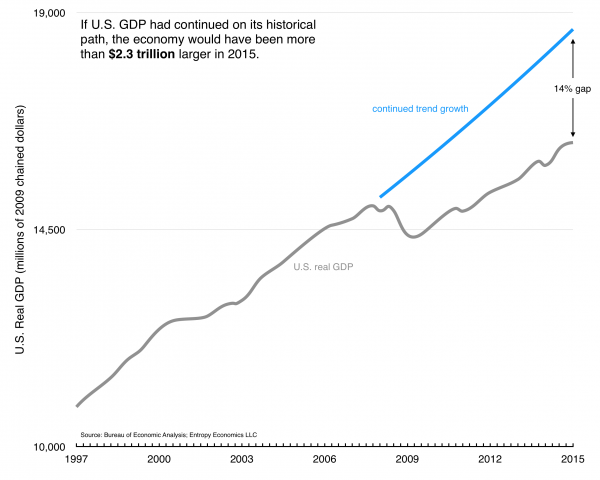The political fights of the last decade have distracted us from what should be, in my view, the central issue of our policy debates—reviving economic growth. First quarter 2015 growth of just 0.2% comes on the heels of a lackluster 2014, when the economy grew just 2.4%. The financial crisis surely took its toll, but for how long can we blame a seven-year-old event, while millions of Americans are denied the opportunities that attend a faster growing economy?
There are many excuses for the first quarter reading. Yes, it was cold. Yes, there might be some statistical aberration—first quarter growth has been conspicuously low for the last few years. But this is not a single-quarter problem. Over the last nine full years, the economy has not achieved 3% growth.
The stock market has recovered nicely, but middle-class Americans and small businesses are struggling with the anxieties of slower growth. If, after the last recession, the U.S. had kept moving ahead at its historical 3% growth rate, the American economy would be $2.3 trillion larger today. (The Congressional Budget Office, using a slightly more conservative analysis, says the economy would be $1.7 trillion larger—still an astounding shortfall.) No, 3% growth is not a law of nature. It is no guarantee. But the failure to clear away self-defeating policies is simply unacceptable. continue reading . . .


